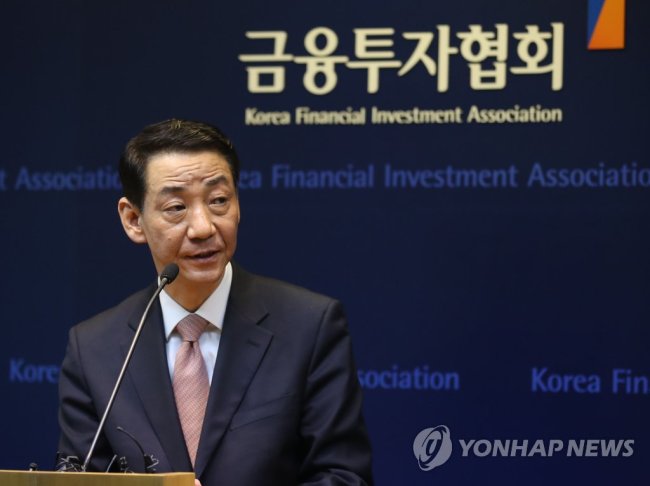KOFIA hails halt of tax change for foreign investors
By Son Ji-hyoungPublished : Feb. 6, 2018 - 18:31
The Korea Financial Investment Association hailed Tuesday the decision by the Ministry of Finance and Strategy to suspend plans to impose capital gains tax on a wider range of foreign investors from nations that do not have a tax treaty with Korea.
Kwon Yong-won, chairman of the self-regulatory organization for financial investment industry, called the decision “a cornerstone for building a stable condition for investors at home and abroad,” in a release Tuesday.
“We welcome the decision by the Finance Ministry to suspend the plan to carry out the tax code revision,” said Kwon, who took office Monday.
Kwon Yong-won, chairman of the self-regulatory organization for financial investment industry, called the decision “a cornerstone for building a stable condition for investors at home and abroad,” in a release Tuesday.
“We welcome the decision by the Finance Ministry to suspend the plan to carry out the tax code revision,” said Kwon, who took office Monday.

The Seoul government has since July been moving to introduce a new tax rule to increase tax collection by reducing the ownership threshold of foreign “large shareholders” -- the targets of taxation -- from 25 percent to 5 percent.
The plan immediately prompted backlash, as critics argued it would cause market disruption amid an infrastructure vacuum and sudden foreign capital flight.
Tax withholders of foreign investors -- mostly securities firms -- contended they did not possess a system to support the new tax scheme and instead had to rely on reports from the investors.
The Finance Ministry said in a release it would reconsider implementing the law in the discussion for a 2019 tax code revision.
By law, the capital gains tax amounts to the lower of either 22 percent of net capital gains or 11 percent of gross sales proceeds. But tax-withholding securities firms in Korea cannot calculate 22 percent of net capital gains due to a lack of infrastructure, and therefore would only have the choice of 11 percent of sales proceeds. This means under the new rule, a foreign large shareholder would have had to pay capital gains taxes even if they suffered losses from investments.
Moreover, nearly half of Korean shares that foreign investors purchased are investments through stock funds, making it nearly impossible to trace who actually owns the shares.
By Son Ji-hyoung
(consnow@heraldcorp.com)









![[Hello India] Hyundai Motor vows to boost 'clean mobility' in India](http://res.heraldm.com/phpwas/restmb_idxmake.php?idx=644&simg=/content/image/2024/04/25/20240425050672_0.jpg&u=)









